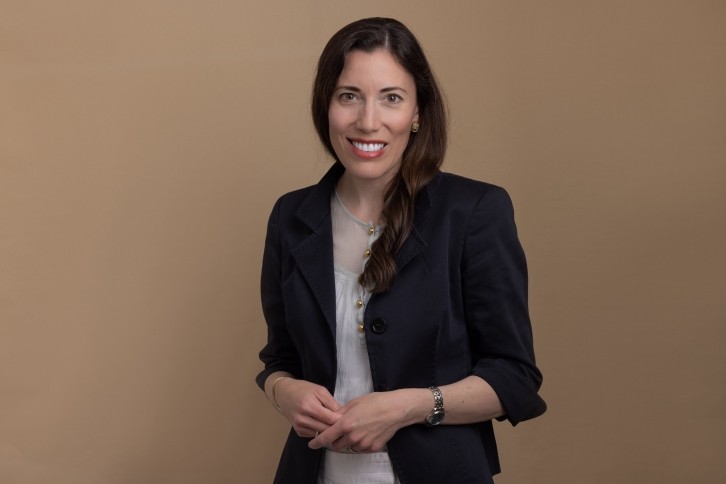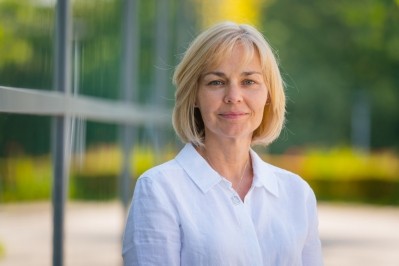Women in Science: Colleen Acosta - from star gazing to reproductive health and the microbiome

Could you give us an overview of your work?
We have a world class team of leaders in the fields of reproductive health and the microbiome. Freya’s drug candidates comprise full-spectrum microbiota and rationally selected strain consortia, which have the potential to restore an optimal, non-inflammatory vaginal microbiome. Freya announced positive topline data from its first proof-of-concept study and has also completed a prospective cohort study in IVF, expanding biomarker data in the initial patient population, and feeding into the company’s multi-omics data platform. Freya’s next generation therapeutics are currently in development and will be tested in clinical trials soon.
I am incredibly privileged to be leading such a specialized and experienced team at Freya. My work, as most CEOs in the biotech sector, is both inwards and outwards facing, which offers remarkable diversity in my day to day. I have the opportunity to both be accountable and internally involved with our science and clinical drug development work, as well as interact with our excellent syndicate of investors, and a wide range of external industry stakeholders.
When did you realize you were interested in science, was it as a young child, teen or older?
I have been fascinated by all things science since a very young age. I loved (and still love) star gazing and NASA’s space program, the natural sciences, e.g., how a tiny seedling could grow into a giant sequoia and observing the machinery of life through a microscope. But it wasn’t until my master’s degree in public health that a real passion for the medical sciences took off. This is where I became fascinated by the impact that microbes have on human health, and how health interventions can change the lives of many. I went on to do a PhD (DPhil) in epidemiology with leading experts at the University of Oxford, focusing on how pathogens in the reproductive tract are associated with poor maternal and infant health outcomes. All of this has given me a fantastic grounding for my current role, and to understand and learn from other branches of science that make up the dynamic industry of biotech.
Could you describe your personal journey bringing us to where you are now?
During the last year of my PhD, I was lucky to have had the opportunity to be awarded a Fulbright scholarship, which brought me to Denmark, a country with a long tradition of meticulously collected patient data. While working on my research there, I was introduced to the World Health Organization (WHO) and offered a position as an epidemiologist. This turned out to be a life-changing experience. I was exposed to the world of high-threat pathogens and global health emergencies – bringing me to all corners of the globe in various leadership positions. Most notably, it afforded me the opportunity to learn how to work effectively in high pressure environments with extensive multidisciplinary teams. These teams often spanned the spectrum of specialists from epidemiologists to virologists, bacteriologists, entomologists, disease experts, medical doctors, allied health professionals, community health workers, engineers, and economists – all needing to work efficiently and effectively together to achieve a common goal of containing an outbreak or building capacity for health emergency response.
I later discovered that the world of biotech has many parallels to this fast-paced interdisciplinary environment. Just before the COVID pandemic, two of my Freya co-founders approached me with their idea for a company developing therapeutics that leverage the vaginal microbiome to affect the local immune response, thus addressing a host of reproductive health conditions. I was hooked. This was an area I understood well from my PhD, and I also understood the critical need for women. So, after some extremely rewarding years at WHO, it was a natural decision to work on Freya with an all-star team and group of co-founders. There are no therapeutics yet available in the areas of women’s health that Freya is focused on, but lots of high unmet need. The unique and novel approach that Freya is using to develop new therapeutics can have a huge impact on the lives of women all over the world.
What challenges did you face - as a woman or otherwise - along the way and what is the most valuable lesson you have learned?
In undergrad I was interested in a great many things but had a hard time seeing a clear path to a career. I graduated well from a stellar school, Stanford University. But it took me a few more (at times stressful) years of exploring before I honed into a graduate program that I really had a passion for. I used to see this period as a failure, but I now see it as a gift. I had a chance to reflect on my own personal drivers, gain maturity, perspective and experiences that set me up for success on the path ahead. It’s made me a calmer, more centered person, which I think are strong qualities in a leader.
What ignites your passion in your current role?
I find it astonishing that we still do not have therapeutics available for some of the oldest known conditions in women’s health. This is why Freya was founded. The areas that we are working to make a difference in have tremendously high unmet medical needs. Approximately 1 in 10 couples face infertility and undergo more than 2 million IVF cycles per year; 1 in 10 women has endometriosis with approximately 40% of them struggling with infertility (some estimates are as high as 50%); and more than 1 in 10 babies are born premature, with approximately 1 million of them dying each year (Sources: WHO Infertility, Endometriosis, Preterm birth). Freya succeeding in its mission will be a game changer for women’s health, and the team at Freya – a group of extremely talented and purpose-driven individuals – are the ones that can make that happen. This is what inspires me every day.
What is your current work ethos/style?
I am a big believer in compassionate leadership, but with high standards and accountability. Every individual in our company plays a key role (much like a professional sports team), and each comes with their own experiences and personal journeys. Our culture is one of diversity, inclusivity, and collaboration, which I strongly believe is the environment that enables top talent to thrive, without being prescriptive. However, the nature of biotech is highly dynamic, and when tough decisions need to be made, as CEO I am not afraid to make those decisions – never rashly, but after careful consideration with key stakeholders.
Could you share some advice for young women starting to develop an interest in science or wanting to pursue a career like yours?
Don’t let your comfort zone keep you constrained if your curiosity is nagging at you. And use all your experiences – you can learn something from each of them. I was not trained as a classical bench scientist, and I do not hesitate to remind people of that or ask questions when I don’t understand. For me, the intersection between my own knowledge and awareness of where that ends, has led to many unexpected opportunities, and being surrounded by people with brilliant minds that I continue to learn from. I think Louisa May Alcott said it best, “I am not afraid of storms for I am learning how to sail my ship.”










